Migas on a Bright Sunday Morning by Elena Dolores Solano Recently I made migas for breakfast. I ripped the tortillas up and placed them in a cast iron pan of hot olive oil and cooked them until they were golden colored. There are a myriad of ways to make migas, a traditional Mexican dish. While the tortillas fried, I chopped onion, garlic and green pepper on an old cutting board mi mamá bought for me years ago. After the tortillas were crispy, I added the vegetables. I sautéed them for a minute and then gently folded in the eggs and waited for them to cook, stirring the dish occasionally. The best corn tortillas are made from three ingredients, corn, lime and water, but when the lime is fried it lets off a peculiar smell of bitter tones. Eventually the smells of the green pepper and garlic catch up, and the mezcla, the mixture of flavors fills the air. My mother taught me to cook that dish and many others. When we made migas, she handed me the bag of corn tortillas wrapped in paper and told me to rip them up. If the pieces were too big, she told me to rip them up smaller. If I cut them into pieces with a knife, she said, “No, no, no,” and shook her head. I eventually figured out what size she wanted for them. For some reason I was always determined to learn how to cook from her, so I let her tell me again and again what to do in the kitchen. She believed in my ability to become a good cook. For her, being a “buena cocinera,” a “good cook,” as I often teased her, was important for many reasons. It meant you could take care of yourself. You could stock a pantry and fill your kitchen with homemade food. But her cooking was also tied to being a traditional Mejicana, where culture, faith, identity and being a woman, were also a mezcla. She was renowned for her cooking in our small barrio in Detroit. She constantly offered food to anyone who walked through her doors or sat on the stoop. I recall her making me take a full plate of fried chicken, mashed potatoes and corn to a homeless man who was sitting outside on the stairs to our building. At that moment I learned, not by words but by action, to serve others, to give freely, even when you have a large brood of your own to feed. She cooked with her comadres, making menudo to sell after mass. They sold the menudo to raise money for flowers for the feast day of Our Lady of Guadalupe. To her, cooking was second nature. When I use her recipes, I sometimes look around the kitchen, as if she is here, waiting with a toalla, a kitchen towel, draped over her shoulder, waiting to eat. Cooking was a gift of love you gave to yourself and others. I am eternally grateful that I learned to cook from her—and that she had the patience to put up with me. I remember being five years old, making tortillas with her. She let me roll small tortillas on her wooden board. She put them on the comal for me. I always let them burn. I loved the smell of the burnt masa. But more so, I loved her turning to me, saying, “You're fired, vayase.” I feigned resignation. When I was in my twenties, she gave me several of her molcajetes, a tool made of smoothened volcanic stone. In English it is called a mortar and pestle, but there is so much more. It is a touchstone, a memory stone, a portal to the past. When I grind garlic, tomatoes or peppino in the heavy bowl, I feel deep calls to tradition and culture. I feel my mamá, her comadres, my abuela and tías when I use those molcajetes. I am filled with memories that cause me to yearn for arms that are no longer here, to dial a phone number that no longer exists. I strain to hear a voice that has passed to the other side. I yearn for the smell of her comal, fire—hot, ready for tortillas. This longing is the hardest to bear. It is the call from the deep that causes such surprise. I know it well. I have seen it in the face of friends as they talk about husbands and wives, abuelos and abuelas, and friends now gone. I have heard that yearning in the voice of my siblings. My brother Gabriel died fifteen years ago. He was bold, hilarious, and opinionated. His eyes flashed like those of a sprite. He was always up to something. One Sunday, he called repeatedly and set me up for a prank. He took a beeper and set it off every time I answered the phone. After seven pranks I yelled into the receiver. His boisterous laugh filled the line, filled the air. He often called on weekend mornings. I drank coffee as we talked about politics and current events. We talked about our childhood, what had gone right and what had gone horribly wrong. Friends have shared with me countless stories of Gabriel helping them out by fixing their washer, or some other odd task. When I was angry or upset he encouraged me to let things go. There are days I want to hear his voice, to answer his phone calls and hear his mantra, “It’s all good, sis, it’s all good.” When my mother was alive, we sometimes had a family tradition of reading the same books. Gabriel and I read Tecumseh: A Life, written by John Sugden several years before he passed away. We lived in Detroit, close to the river, close to historic Fort Wayne and we were lifelong parishioners of Ste. Anne de Detroit, which was also close to the river. We knew our parish and the land all along the Detroit river had once been home to the Objewe, Potawatomi and Ottawa—the Anishinaabe peoples. We often talked about the injustices and crimes committed against Native Americans. Tecumseh gave us a much deeper insight into the history of the Native Americans of Michigan, Indiana and Ohio. Gabriel was much more expressive in his anger and emotions., and while I felt the injustices deeply, I was much more subdued. When the Archdiocese of Detroit closed all of the Catholic High Schools in the city of Detroit, students and staff marched in protest from Southwest Detroit to the Archdiocese in downtown Detroit. I was the bilingual school counselor for the only Catholic School in the city that served Latina/o students and families. Gabriel walked with us that day. I felt a deep loss at the closing of the school. I knew it meant I had to look for employment elsewhere. Gabriel saw it as an injustice against our community and he railed against its closing. I was lost in my emotions and didn’t know how to respond. I felt betrayed by the Archdiocese, but I was also afraid to admit the blow that I felt. We were a Latino/a community, we were Catholic. How could they shut us down? How could they betray us? But Gabriel was fearless. He wanted to stand up in mass and yell down the priest, but I knew my mother, a leader in our parish, would be mortified and would never recover from the shame. I knew I would feel embarrassed. The Archdiocese was wrong for shuttering the numerous Catholic high schools in the city. It was about money and dare I say, race. But I was a good Mexican daughter, I could not allow him to stand up in mass. Somehow I talked him out of the idea. I wish I had learned more of how to be fearless from him. I wish I had his strength and willingness to live more on the edge and take more risks. Too often, I let fear get the better of me. When I think of Gabriel now, I think of our shared love of food and music, of reading and social justice. I picture an angel, not a white angel covered in feathers, but an angel that looks like my brother, brown and strong, with dark feathers and hair as black as coal, carrying a sword and a shield. He does not fly lightly, he flies with a force for justice, while seeking peace. Another brother, Anthony Juan, died in 2019. He was a fierce patriarch and protector. He was rough and struggled with many demons, but he was also a storyteller. He was filled with stories about the streets and his many adventures. Tony was 15 years my senior. But his laughter and sense of humor were quick. While many people feel hugging and kissing are no longer propio, Tony always insisted I kiss him on his cheek. It always felt like kissing a brillo pad. He was a giant in my eyes. As a child, I prayed for him often. He gave my parents grief, but their love for him was relentless. He told me he promised himself he would no longer cause my parents sorrow when he saw my father cry over a situation he was involved in. Tony was an incredible artist. I longed for his artwork. He did it in bits and pieces. At the end of each October at our home parish, I put up a community Ofrenda. It is large and changes every year. I think about the theme over the course of the year. I sit in front of the space it will occupy and I try to think and pray and listen to what it should be, to what it wants to say. The year that Tony passed away was also the year that numerous children from Central America and Mexico died while crossing the Rio Grande River, trying to cross over. As a family we loathed (and continue to loathe) how our people were, and are, treated by the Right and the Left. That year I dedicated the Ofrenda to the children who had died crossing over. But I also set up a section dedicated to Tony. Pictures of the children covered the top section of the Ofrenda and on the buttomsection was Tony and his art work. But it was so strange to me that no one brought in pictures of their loved ones that year until the month of November was almost over. Normally hundreds of photos adorn the Ofrenda by the middle of November. But it was almost as if Tony was guarding those children in the underworld. His work wasn’t finished. He was still protecting, still guarding, still doing his work. Tony created stories wherever he went. One Christmas, he took my children aside and pulled a long blade out of his walking cane. He told them that if anyone ever touched them, that person would disappear and never be found. We knew he meant every word. He left my children with countless stories of boldness and misadventure. Tony loved astronomy. After he died, I had the distinct feeling that a new star had joined the cosmos—heaven was not quite ready for him. I often felt smaller than my brothers. They were large, dark, strong, muscular, very popular in our Southwest Detroit community, with the high cheekbones of my mother and the dark skin of my father. Their hair was coal—black. I was just me. Mousy, bookworm, with a big heart and a thirst for knowledge. But I also sing. So I sang at their funerals. I do not relish singing at funerals, but perhaps they knew they were leaving this earth before the rest of us. They told me what songs they wanted sung at their funerals. I did what I could. But each time I saw Tony, he told me he wanted me to sing “Ave Maria”. And while I sang it at my mother’s funeral and at Gabriel’s funeral, I was recuperating from a head, facial and ear injury at the time of Tony’s funeral. I still owe him that song. Promesa. My brothers were shadow and light, another mezcla. They danced on the edges with angels and demons and often fell, but they always got back up. They were tenacious traviesos--mischevious to a fault, but they lived unafraid. They loved running and reading, baseball and science. They both had a passion for social justice and helping others. I have seen enough of death to know the long shadow it casts, but I have also learned of the life it can bring. I am determined to remember the living. In my mind’s eye, my mother was full, a heart and life bursting with healing and love. Her quiet faith and certitude carried her. Her eyes carried laughter and sorrow, and her body showed frailty and strength. A softness enveloped her, it was as if La Virgen de Guadalupe really did cover her. Wasn’t that mi mamasita’s prayer each time we left her house in Detroit? That La Virgencita would cover us and protect us with her tela? I hold her rosary beads and sit in the well—worn white armchair where she welcomed her grandchildren, where she spent her last hours on earth. It is in a corner of my bedroom, in a window facing west. I watch the setting sun and remember her. I want to remember the light in my brothers, their passion for justice, for the broken and the poor. I want to remember their loud, boisterous voices. Their houses always had stacks of magazines, newspapers and books on history, science and politics. Gabriel always challenged me to look at my other siblings from another angle, to see with a new view, without hurt or bitterness, to live without judging yourself or others. I want to remember how safe I felt because of them. No matter where I went in Detroit, I knew they were looking out for me. After Gabriel died, I felt vulnerable. I wondered who would protect me. After Tony died, I felt it again. Who would look out for me? It took a while for me to realize my other brothers were there for me, too. When the migas finished cooking I put them on a plate my mother gave me years ago. The smell of garlic, green pepper and lime hung in the air. In the curls of steam that rose from the plate, I saw my brothers and mother, their laughter and grief, their sorrow and healing. I remember that we are all a mezcla of the present and the past. I look at the plate and think of her and others who have gone on to the other side—my brothers, my tias and tios, friends, and other people I have loved. They left pedazitos de sus corazónes, little pieces of their hearts, here and there, spread throughout our lives, like migas on a plate on a bright Sunday morning. 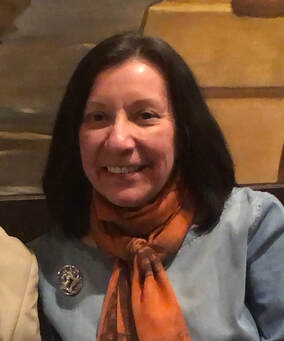 Elena Dolores Solano was born and raised in Detroit, Michigan. She is one of fifteen children. Her parents were migrant workers who moved north in the 1940s. She is a certified school counselor and works with Latino/a students in the public school system of Detroit. She is also a Licensed Professional Counselor. Ms. Solano has written for many years of her experience growing up in a large Mexican American family in Detroit. In her spare time Ms. Solano enjoys collecting anything old, a Solano family tradition, cooking Mexican food and spending time with her children, her family and friends.
4 Comments
Judith Grech
3/29/2022 03:16:32 am
Such a beautiful touching story I also grew up in Detroit thank u for sharing.
Reply
Maria Elena Rodriguez
3/29/2022 07:48:31 am
What a beautiful tribute to your family. You are blessed with a "don" for storytelling and allowing us to feel the love your parents instilled in you and your siblings. I cannot wait to read the next chapter. Continued success estimada escritora, amiga, y gran ser humano.
Reply
Maria Anita Guadiana
3/29/2022 09:33:13 am
A beautiful tribute to Gabriel, your mother and siblings. I grew up around the corner from the Solano family and continue to be friends with Elena and her brothers. Thank you for writing about these experiences that many of us can also relate to!
Reply
Jas Obrecht
3/30/2022 06:41:10 am
A beautiful, heartfelt, and very well-written remembrance. Congratulations, Elena!
Reply
Your comment will be posted after it is approved.
Leave a Reply. |
Archives
June 2024
Categories
All
|
Donate and Make Literature Happen
is published by the Somos En Escrito Literary Foundation,
a 501 (c) (3) non-profit, tax-exempt corporation. EIN 81-3162209

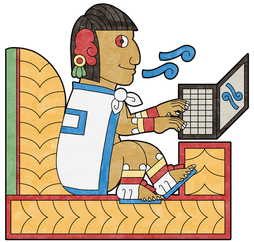
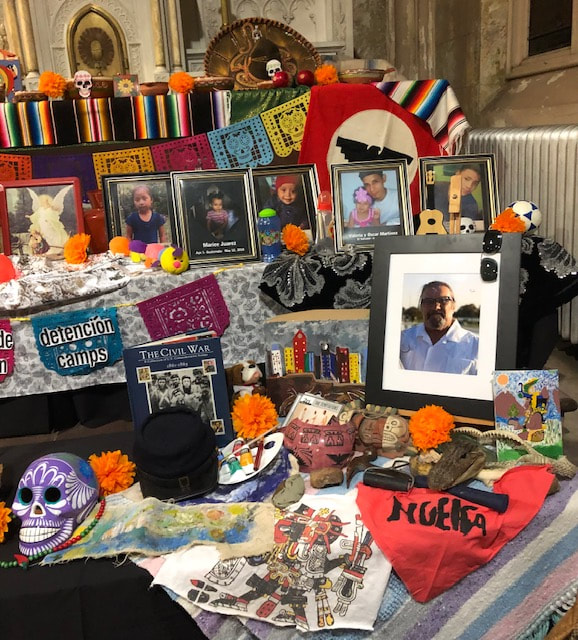
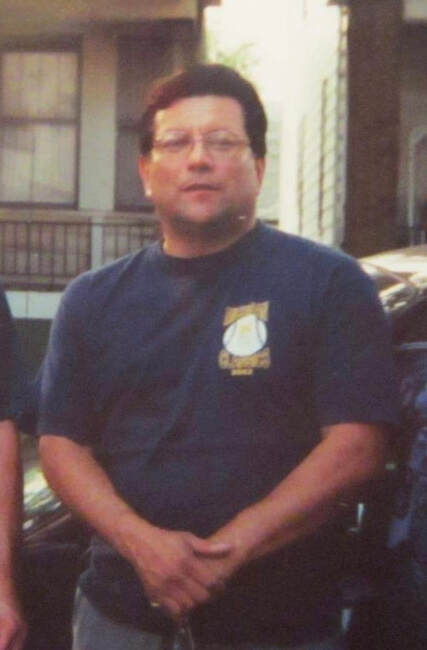
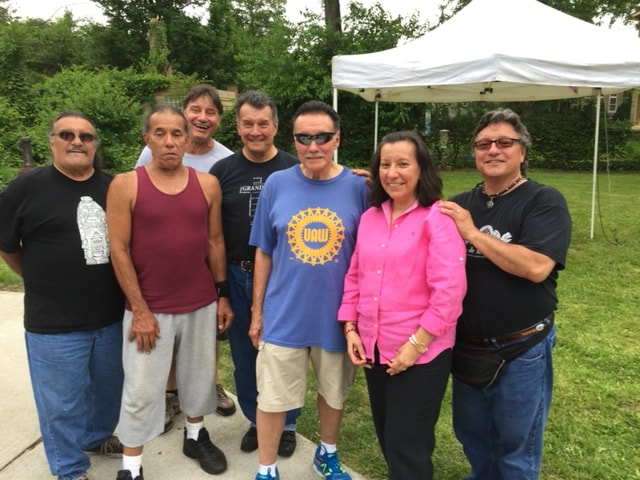
 RSS Feed
RSS Feed